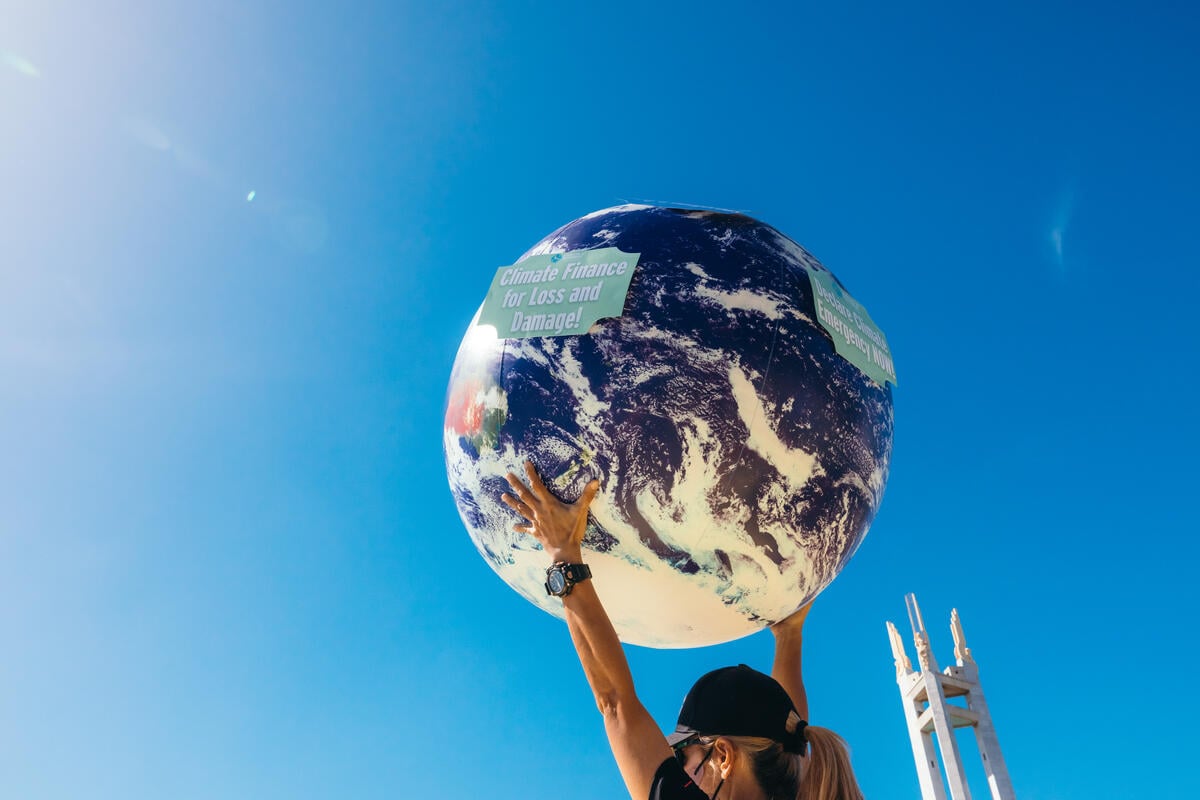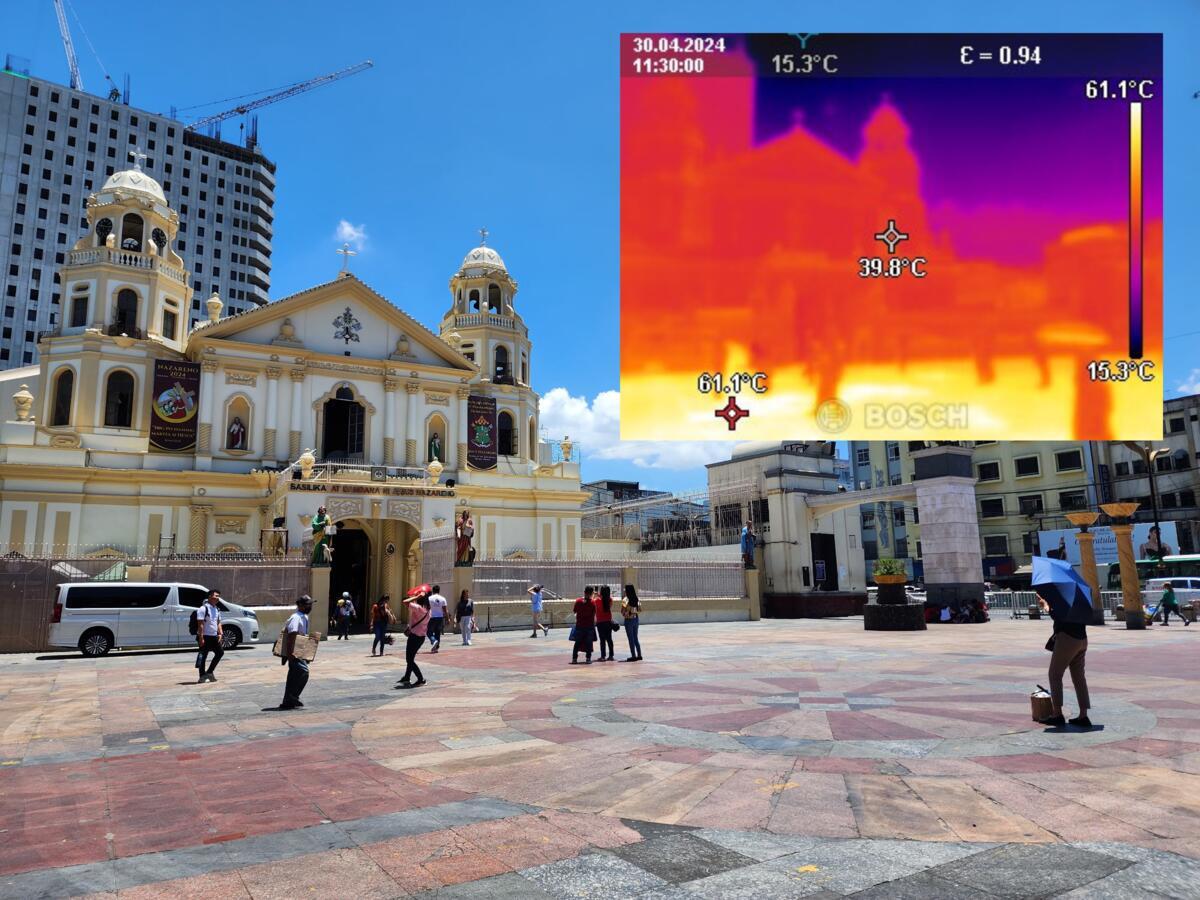QUEZON CITY, Philippines — Today, the Dumagat-Remontado communities who have undertaken a 9-day Alay Lakad Laban Sa Kaliwa Dam march, are scheduled to arrive in Malacanang Palace to call on the president to stop the Kaliwa Dam project. They were joined by environmental advocates and civil society groups.
Greenpeace Philippines campaigner, Rhea Jane Mallari, said:
“Greenpeace is joining this march and is supporting Dumagat-Remontado communities and their call to stop Kaliwa Dam and save the Sierra Madre. We walk with them in solidarity with them in their courageous march to ensure a green, just and peaceful future.
“The construction of Kaliwa Dam, the first in a network of other large dams, will destroy vital ecosystems and biodiversity of the Sierra Madre mountain range. It endangers communities who rely on this ecosystem for their livelihood, culture, and protection from hazards. It also magnifies the social injustices that vulnerable communities already face.
“Greenpeace believes that pursuing this project is an atrocious move, particularly at a time of worsening climate crisis. Safeguarding biodiversity and ecosystems—as well as safeguarding the rights of, and securing justice for, those most affected—is fundamental to climate resilience.
“Instead of pursuing destructive projects that not just destroy nature, but also harm people’s rights, undermining their ability to be resilient in the face of climate impacts, the Philippine government must:
- protect and restore nature: (1) restore and rehabilitate watersheds and forests to ensure water security for the entire country, and (2) protect and rehabilitate of the country’s freshwater bodies as this can serve as water source for cities and communities; and
- pursue people-centered climate resilient development: implement programs that are consistent with the aim of building resilient communities better able to adapt to the impacts of a changing climate over the long haul, while forging solutions sensitive to local realities that would reduce if not prevent environmental risks to vulnerable communities.
- Heed the call of the people to participatory governance and not just include them in the process but recognize their rights to their land and to their cities/communities.
“As the climate crisis interacts with other human-made problems such as biodiversity loss, overexploitation of resources and social injustices, the government must pursue solutions that respond to these multiple needs. Kaliwa Dam must be stopped as it will endanger the environment and Filipino people.”
NOTES
- Greenpeace believes that building more dams is not the solution to the water crisis. To ensure the entire country’s water security, the government should ensure that:
- the management of water resources is a deliberate and important focus in the national climate change strategy, mainstreamed across national and local climate change adaptation strategies;
- water management is a major consideration both for long-term policy directions and in programs that directly and indirectly affect the protection, allocation and control of water resources; improved water management—from the protection of water sources, to water management systems, to demand side adaptation—is a key approach and its strategies must also be flexible and robust given the many uncertainties that the climate crisis poses.
- The country’s (and Metro Manila’s) current water situation can be addressed through more sustainable approaches such as:
- Watershed forest conservation and protection and rehabilitation of degraded watersheds;
- Repair and improvement of existing water infrastructure (to eliminate water losses); including the rehabilitation of existing dams that are heavily silted, and improvement and repair of distribution systems; and
- Implementation and strengthening of water conservation policies such as incentivizing and encouraging water treatment and utilization of recycled/grey water in high-consumption institutions such schools, hospitals, malls among others, as well as promoting and encouraging built-in rainwater catchment systems in new residential construction.
- The Dumagat-Remontado communities of Daraitan provided vegetables to Metro Manila during the height of the pandemic, helping supply community pantries in solidarity with urban communities who had limited access to food.
- Also see “Climate Change and Water” a Greenpeace Philippines study on water systems and climate impact in the country, published in 2010.
Media Contact:
Karl Orit, Communications Campaigner
Greenpeace Philippines | [email protected] | +63 9194571064
JM Sagum, Communications Campaigner
Greenpeace Philippines | [email protected] | +63 9989659573



